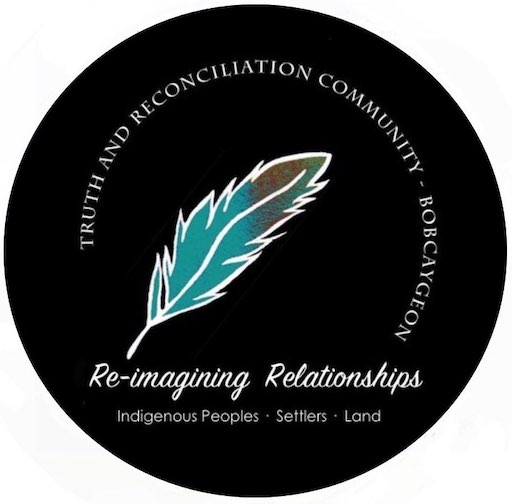Article in Promoter written by Glenna Burns
Manomin (wild rice) is a plant that holds great significance. It is an edible item and medicine. It is a plant embedded deep in the culture of Indigenous people. It flourishes in clean water and combats invasive species like ‘water soldier’. Manomin provides economic and health stability for harvesters and users.
Yet somehow this virtuous plant has become the lightening rod for bad feelings.
On Monday November 2 at the Peterborough Library auditorium hundreds of people gathered to hear a panel presentation on Manomin and its role in reconciling these bad feelings. The focus of the evening was attempting to understand how ‘reconciliation’ fits into the context of living respectfully with Treaty relationships.
The distinguished panel of Williams Treaty First Nations members included Dave Mowat, Leanne Simpson, Doug Williams and James Whetung. The Indigenous Studies department of Trent University sponsored the event moderated by Lynn Davis.
Ms. Davis began the discussions by talking about the two pillars of cultural genocide against First Nations people in Canada. The Residential School system impacted generations of children who were ripped from their homes and families and forced to live in a school system that degraded their language, culture and lifestyle. The second pillar of destruction was removing Indigenous people from their land and territory.
Ms. Simpson provided a concise history of First Nations relations with Settlers. Political systems and treaties had been established among local Indigenous groups that respected sovereignty and self determination. Settlers were given room and rights on the land. Then came the Trent Severn Waterway,the Indian Act, forests were decimated, the salmon and eels disappeared, land on lakes was sold for cottages until there was not even a place to launch a canoe.
The results of this treatment were anger and shame. People have struggled to reclaim their culture; to know their language, stories, songs and traditions.
“The symbol of Manomin carries a renewal of culture and spirit and pride. I’m not a fan of reconciliation because the damaged structures are still in place,” she stated.
James Whetung owner of Black Duck Wild Rice has been a harvester for 25 years. He has fond memories of harvesting with his family and learning the mysteries of the rice processing. He talked about ‘dancing’ on the rice and how it was “a beautiful and satisfying experience”. He added, “just like protesting, wild rice is a lot of work”.
One concern for Mr. Whetung is the health issue of diabetes among his people at Curve Lake. Their traditional food was ‘legislated right out of use’ and now ‘rice’s voice is being heard’. He and others on the panel dream of someday seeing the rice back in Rice Lake.
The Mississauga people on whose traditional territory we in the Kawarthas reside, are part of the larger Ojibwa nation totalling over 200,000 people.
Dave Mowatt summed up the feeling of the panel and the room in general when he stated, “Steadfast, this is our right (to harvest Manomin)… We are going to harvest until the end of time”.

